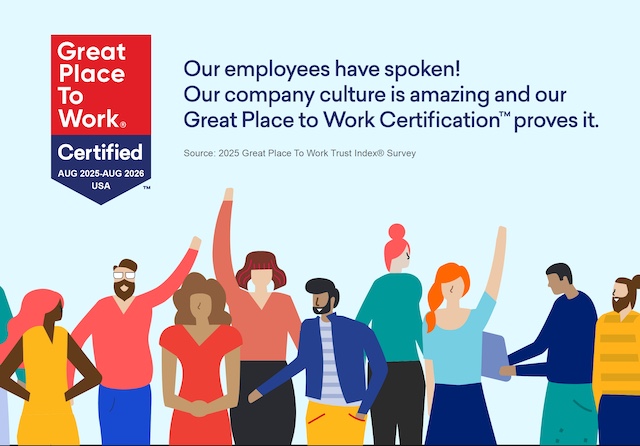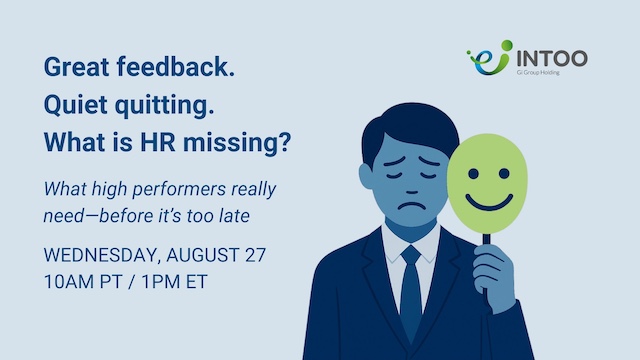A self-evaluation is a reflective process in which an individual assesses and analyzes their performance, skills, and achievements in their job. It involves introspection and critical examination of one’s strengths, weaknesses, and areas for improvement.
As a manager, tasking your team to complete a self-evaluation is critical for individual and collective success. This assessment process allows them to thoroughly evaluate their achievements, challenges, work styles, and goals in the context of the past year. The self-evaluation process prompts employees to consider crucial factors like how successfully they fulfilled formal job expectations, how well their skills align with company values, and what developmental areas they aim to focus on in the upcoming performance review period.
Help your employees take charge of their careers. Download these tips to make career development conversations more meaningful.
Why Are Self-Evaluations Important in the Workplace?
Self-evaluations play a crucial role in the workplace, benefiting both managers and employees by fostering communication, enhancing performance, and promoting professional growth.
For managers:
Managers gain valuable insights into their team members’ perspectives through self-evaluations. This firsthand account allows managers to understand employees’ perceptions of their own contributions, strengths, and challenges. It provides a holistic view of individual performance beyond what may be apparent in day-to-day interactions. Additionally, self-evaluations contribute to fair and comprehensive performance assessments. By combining employees’ self-assessments with managerial evaluations, a more well-rounded and accurate picture emerges, aiding in more informed decision-making regarding promotions, training opportunities, and resource allocation. Moreover, self-evaluations can be instrumental in identifying employee aspirations and areas for improvement, guiding effective coaching and development strategies.
For employees:
Self-evaluations empower employees by allowing them to participate actively in the performance review process. This reflective exercise prompts individuals to take ownership of their professional development, fostering a sense of accountability. It provides a platform for employees to highlight their achievements, showcase skills, and articulate career goals that, in turn, aid in career planning and advancement. Furthermore, self-evaluations facilitate open communication between employees and managers, encouraging a dialogue about expectations and performance standards. By engaging in this process, employees better understand their strengths and weaknesses, enabling targeted efforts for skill enhancement and continuous improvement. Lastly, self-evaluations can boost morale and job satisfaction, giving employees a voice in the evaluation process and contributing to a more transparent workplace culture.

6 Helpful Tips to Follow When Writing a Self-Evaluation
Writing a self-evaluation can be challenging, but giving your employees these six tips to follow can make the process more effective and meaningful.
1. Embrace transparency
Encourage honesty and self-awareness. Remind your team that self-evaluations are not about boasting or hiding weaknesses. They are an opportunity to provide a clear and objective picture of their performance. Normalize acknowledging mistakes and setbacks as valuable learning experiences. Suggest they approach the evaluation with a growth mindset, focusing on what they learned from challenges and how they can improve.
2. Quantify your impact
Ask employees to go beyond just listing tasks and responsibilities. Encourage them to quantify their contributions whenever possible. Did they exceed sales targets by 15%? Did they implement a new process that saved the company 20% on production costs? Concrete data adds weight and credibility to their achievements. Suggest they gather specific metrics and examples to support their claims, making their evaluation more impactful and informative.
3. Showcase growth and initiative
Team members should highlight what was accomplished and how it was accomplished. Did the employee take the initiative to solve a problem? Did they learn new skills to tackle a challenging project? Encourage your team to showcase their proactive approach and willingness to go the extra mile. Suggest they focus on specific instances where they demonstrated growth, initiative, and problem-solving skills.
4. Seek feedback and collaborate
Self-reflection is essential, but external perspectives offer valuable insights. Encourage your team to seek feedback from colleagues, clients, or mentors. This collaborative approach can shed light on blind spots and provide a more holistic picture of their performance. Suggest they include a section in their self-evaluation where they acknowledge the feedback received and highlight how they plan to incorporate it into their development plan.
5. Set SMART goals for the future
Self-evaluations are not just about the past but also about the future. Encourage your team to set SMART goals—Specific, Measurable, Achievable, Relevant, and Time-bound—for their future growth. These goals should line up with both their career ambitions and the company’s objectives. Suggest they break down their goals into actionable steps and identify the necessary resources to achieve them.
6. Provide a framework and structure
While encouraging honesty and self-expression, providing a framework for your team’s self-evaluations is also helpful. This framework could involve suggesting specific categories to cover, such as crucial accomplishments, areas for improvement, professional development goals, and training needs. A clear structure will guide their reflection and ensure their evaluations are comprehensive and informative, while also lending consistency to your review process.
Self-Evaluation Example (2024)
Following is a sample self-evaluation from a fictional employee.
Accomplishments:
Over the past year, I have played a pivotal role in optimizing our customer service operations, resulting in a 20% increase in customer satisfaction. My initiative to implement a new feedback system has allowed us to promptly address customer concerns, showcasing my dedication to enhancing the overall customer experience.
Learning and Development:
Recognizing the importance of staying abreast of industry trends, I’ve actively pursued professional development opportunities. Attending relevant webinars and obtaining certifications has deepened my understanding of emerging technologies, enabling me to contribute more effectively to our projects.
Challenges and Growth Areas:
While my communication within the team has been effective, I aim to further enhance cross-functional collaboration. I plan to initiate regular team-building activities to foster a more cohesive work environment, ensuring seamless cooperation on upcoming projects.
Innovation and Creativity:
One notable achievement was introducing a streamlined project management system, reducing project timelines by 10%. I am committed to further fostering an innovative culture within our team by encouraging idea-sharing and brainstorming sessions.
Future Goals:
Looking ahead, I aspire to lead a cross-functional project, leveraging my skills to bring diverse teams together for a common goal. Participating in leadership training programs will be instrumental in honing the necessary skills to achieve this milestone.
Looking to build and advance your company’s culture? Download this guide for practical tips.
Improve Your Business by Utilizing Self-Evaluations
Integrating self-evaluations into your business processes can enhance employee engagement, improve communication, and create a more motivated workforce. By leveraging the insights gained from these evaluations, managers can tailor professional development plans, align individual goals with the organization’s, and foster a culture of continuous improvement. Empower your team to actively contribute to their growth, and watch your business thrive in a collaborative and forward-thinking environment.
INTOO’s career development programming can help your employees increase their performance, achievements, and growth while setting up your organization for better resilience and greater success. Contact us today to learn more.











